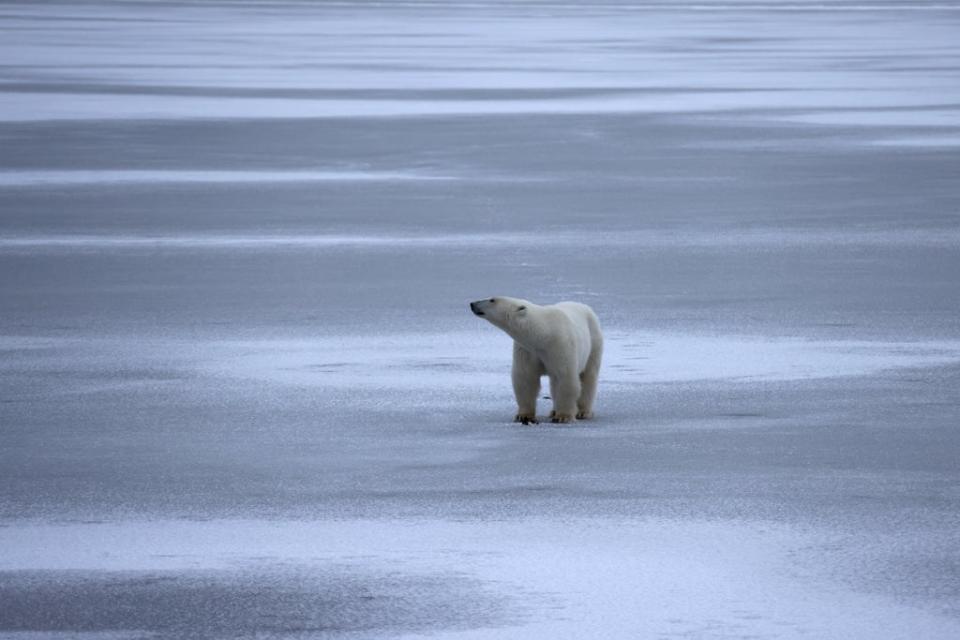Polar bear captured on video drowning reindeer as climate crisis intensifies struggle for food

The climate crisis may be pushing polar bears to use new tactics to seek out unexpected sources, including drowning reindeer, according to researchers.
In 2020, Polish researchers captured what’s believed to be the first ever recording of a polar bear drowning a reindeer, which they described in a recent article in the journal Polar Biology.
The clip, filmed by Mateusz Gruszka on Norway’s frigid Svalbard archipelago, shows a polar bear that appears in “excellent condition” swimming after a reindeer, which it drowns then drags to shore.
The tactic suggests that the bears, increasingly pushed to spend more time on land because of melting polar ice caps, are seeking out other food sources to replace their usual diet of fat-rich seals.
“In recent decades, more polar bears have been forced to remain longer on land, so their access to seals is limited,” the researchers write, though they caution “the importance of terrestrial food to polar bears is disputable, and more data are needed.”
1st video of a polar bear hunting a reindeer #natureismetal https://t.co/ZqlxKfcydu pic.twitter.com/csP5AycSqc
— Alec Luhn (@ASLuhn) November 19, 2021
Polar bears weren’t known to hunt reindeer in large numbers before 2000, as global heating became unignorable, and reindeer remains began showing up in “high frequency” in polar bear scat, according to the researchers.
Svalbard, home to a population of about 300 polar bears, could become a regular reindeer hunting ground.
“If polar bear mothers learn to hunt reindeer efficiently, their offspring, which stay with their mothers for over two years, may also become reindeer hunters,” the researchers add.
The climate crisis could also push the bears to seek out other opportunistic food sources, such as dead fish and cetaceans washed ashore, rodents, offal from landfills, and the leftover remains of marine mammals hunted by humans.
Read More
Beavers saved from culling in ‘groundbreaking’ move
Lake that dried up 100 years ago returns as rains swamp northwest US

 money
money 